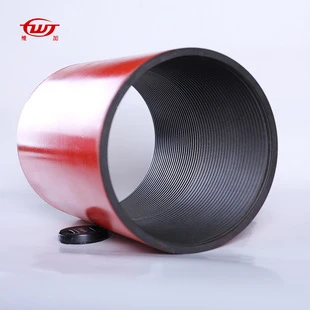- Afrikaans
- Albanian
- Amharic
- Arabic
- Armenian
- Azerbaijani
- Basque
- Belarusian
- Bengali
- Bosnian
- Bulgarian
- Catalan
- Cebuano
- Corsican
- Croatian
- Czech
- Danish
- Dutch
- English
- Esperanto
- Estonian
- Finnish
- French
- Frisian
- Galician
- Georgian
- German
- Greek
- Gujarati
- Haitian Creole
- hausa
- hawaiian
- Hebrew
- Hindi
- Miao
- Hungarian
- Icelandic
- igbo
- Indonesian
- irish
- Italian
- Japanese
- Javanese
- Kannada
- kazakh
- Khmer
- Rwandese
- Korean
- Kurdish
- Kyrgyz
- Lao
- Latin
- Latvian
- Lithuanian
- Luxembourgish
- Macedonian
- Malgashi
- Malay
- Malayalam
- Maltese
- Maori
- Marathi
- Mongolian
- Myanmar
- Nepali
- Norwegian
- Norwegian
- Occitan
- Pashto
- Persian
- Polish
- Portuguese
- Punjabi
- Romanian
- Russian
- Samoan
- Scottish Gaelic
- Serbian
- Sesotho
- Shona
- Sindhi
- Sinhala
- Slovak
- Slovenian
- Somali
- Spanish
- Sundanese
- Swahili
- Swedish
- Tagalog
- Tajik
- Tamil
- Tatar
- Telugu
- Thai
- Turkish
- Turkmen
- Ukrainian
- Urdu
- Uighur
- Uzbek
- Vietnamese
- Welsh
- Bantu
- Yiddish
- Yoruba
- Zulu
casing collar
Understanding Casing Collars A Key Component in Oil and Gas Operations
In the realm of oil and gas exploration, the term casing collar emerges as an essential component in the drilling process. Casing collars play a vital role in ensuring the structural integrity of wellbores during drilling and production. With their importance underscored by safety, efficiency, and cost-effectiveness, a deep dive into the functions and types of casing collars reveals their critical role in the success of oil and gas operations.
What are Casing Collars?
Casing collars are specialized fittings that are installed on the casing pipes during the drilling of oil and gas wells. Casing pipes are significant tubular structures that line the wellbore's walls and provide support, stability, and protection against collapse. Casing collars are typically placed at regular intervals along the casing string to facilitate proper placement and help guide the casing into the wellbore. They are usually made of durable materials such as steel, designed to withstand harsh downhole conditions, including pressure fluctuations and corrosive environments.
Functions of Casing Collars
The primary functions of casing collars include
1. Structural Support Casing collars offer additional support to the casing string, ensuring that it remains straight and stable throughout the drilling process. This stability is crucial for maintaining the well's integrity.
2. Positioning Guidance By marking specific intervals along the casing, collars aid in accurate positioning during installation. This precision is essential in aligning the casing with various geological formations, which can impact drilling efficiency and safety.
3. Facilitating Cementing Operations During the cementing process, casing collars play a pivotal role. They help to contain the cement slurry, allowing for proper placement around the casing. This cement layer bonds the casing to the surrounding rock, providing additional insulation and support.
4. Enabling Connection Points Casing collars serve as connection points for additional casing components and tools, such as packers and liners. This connectivity is vital for implementing various completion techniques and interventions in the future.
casing collar

Types of Casing Collars
There are several types of casing collars that are utilized in the industry, each with specific applications
1. Regular Casing Collars These are standard collars often used in routine drilling operations to provide structural support and facilitate cementing.
2. Cementing Collars Specifically designed for cementing applications, these collars feature unique geometries to enhance cement placement and bonding around the casing.
3. Specialty Collars In some instances, specialty collars are designed for unique scenarios, such as high-pressure wells or environments featuring extreme temperatures or corrosive substances.
4. Float Collars These collars incorporate a one-way valve that prevents backflow during the cementing process, ensuring that the cement flows properly without any fluids intruding from the wellbore.
The Importance of Quality in Casing Collars
The quality of casing collars is paramount. Poor-quality collars can lead to various issues, including premature failure, which could result in costly repairs and safety risks. Thus, it is essential for operators to source casing collars from reputable manufacturers and ensure they meet industry standards. Rigorous testing for strength, durability, and resistance to corrosion is crucial in maintaining the integrity of the well.
Conclusion
In conclusion, casing collars might seem like a minor detail in the grand scheme of oil and gas operations, yet their significance cannot be overstated. They are integral in supporting wellbore structure, guiding the installation of casing, and enhancing the effectiveness of cementing operations, all of which are crucial for the success and safety of drilling projects. As the industry continues to evolve, innovations in casing collar technology will likely enhance their performance and reliability, ensuring that oil and gas exploration remains efficient and safe. Understanding the critical nature of these components is essential for anyone involved in upholding the standards of drilling operations in today’s demanding environments.
-
Tubing Pup Joints: Essential Components for Oil and Gas OperationsNewsJul.10,2025
-
Pup Joints: Essential Components for Reliable Drilling OperationsNewsJul.10,2025
-
Pipe Couplings: Connecting Your World EfficientlyNewsJul.10,2025
-
Mastering Oilfield Operations with Quality Tubing and CasingNewsJul.10,2025
-
High-Quality Casing Couplings for Every NeedNewsJul.10,2025
-
Boost Your Drilling Efficiency with Premium Crossover Tools & Seating NipplesNewsJul.10,2025







